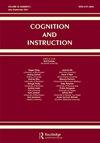家庭文化是探究性学习的语境
IF 2.3
1区 心理学
Q2 PSYCHOLOGY, EDUCATIONAL
引用次数: 9
摘要
摘要先前的研究表明,在实践社区中的参与塑造了儿童对实践曲目的发展——在文化社区中参与活动的方式。家庭是一个享有特权的学习群体,因为他们在一起的时间很长,家庭关系的亲密性质,以及在孩子入学前这段时间对学习的重要性。因此,探索文化如何在家庭背景下塑造儿童的学习是很重要的。我试图通过探究来理解家庭文化的概念对幼儿学习的解释,以及儿童如何参与塑造家庭文化。根据Nasir、Rosebery、Warren和Lee对文化的定义,我探索了家庭文化如何作为互动的基础——资源——在互动中构建、具体化和转化。利用价值领域(DoV)的分析视角——与现象集合相关的有价值的目的和实践的星座——我对两个家庭进行了案例研究,以及对一个家庭DoV的理解如何将通过探究学习的时刻置于情境中。这一分析有助于理解通过互动历史追溯的语境视野如何揭示儿童在与他人询问他们的世界时所借鉴的实践。通过这一分析,我探讨了家庭文化如何成为学习的背景,以及孩子们如何塑造这种文化。通过阐明家庭文化在儿童学习中的作用,这项工作有助于理解文化的可变性。这项工作还反对对文化社区的单一表述和任何单一“正常”发展道路的叙事。最后,这项工作展示了幼儿的能力和才华,他们共同构建了对世界的探究,塑造了他们的家庭文化,然后在新的背景下连接到这些文化资源。本文章由计算机程序翻译,如有差异,请以英文原文为准。
Family Culture as Context for Learning through Inquiry
Abstract Prior research shows that participation within communities of practice shapes children’s development of repertoires of practice—ways of engaging in activities within a cultural community. Families are a privileged community for learning because of the extensive time spent together, the intimate nature of family relations, and the importance of this time for learning before children enter schools. It is therefore important to explore how culture shapes children’s learning in the family context. I seek to understand what the concept of family culture explicates about young children’s learning through inquiry and how children participate in shaping family culture. Drawing on Nasir, Rosebery, Warren, and Lee’s definition of culture, I explore how family culture serves as substrate—resources for interaction—that can be built, reified, and transformed in interaction. Using the analytical lens of Domain of Value (DoV)—constellations of valued purposes and practices associated with collections of phenomena—I present a case study of two families and how an understanding of a family DoV contextualizes moments of learning through inquiry. This analysis supports understanding how the contextual horizon traced through interactional histories sheds light on practices children draw upon when inquiring about their world with others. Through this analysis I explore how family culture serves as context for learning and how children shape that culture. By explicating the role of family culture on children’s learning, this work contributes to understanding cultural variability. This work also pushes against monolithic representations of cultural communities and narratives of any singular “normal” developmental pathway. Finally, this work demonstrates the competence and brilliance of young children as they co-construct inquiry about their world, shape their family culture, and then connect to these cultural resources in new contexts.
求助全文
通过发布文献求助,成功后即可免费获取论文全文。
去求助
来源期刊

Cognition and Instruction
Multiple-
CiteScore
7.90
自引率
12.10%
发文量
22
期刊介绍:
Among education journals, Cognition and Instruction"s distinctive niche is rigorous study of foundational issues concerning the mental, socio-cultural, and mediational processes and conditions of learning and intellectual competence. For these purposes, both “cognition” and “instruction” must be interpreted broadly. The journal preferentially attends to the “how” of learning and intellectual practices. A balance of well-reasoned theory and careful and reflective empirical technique is typical.
 求助内容:
求助内容: 应助结果提醒方式:
应助结果提醒方式:


